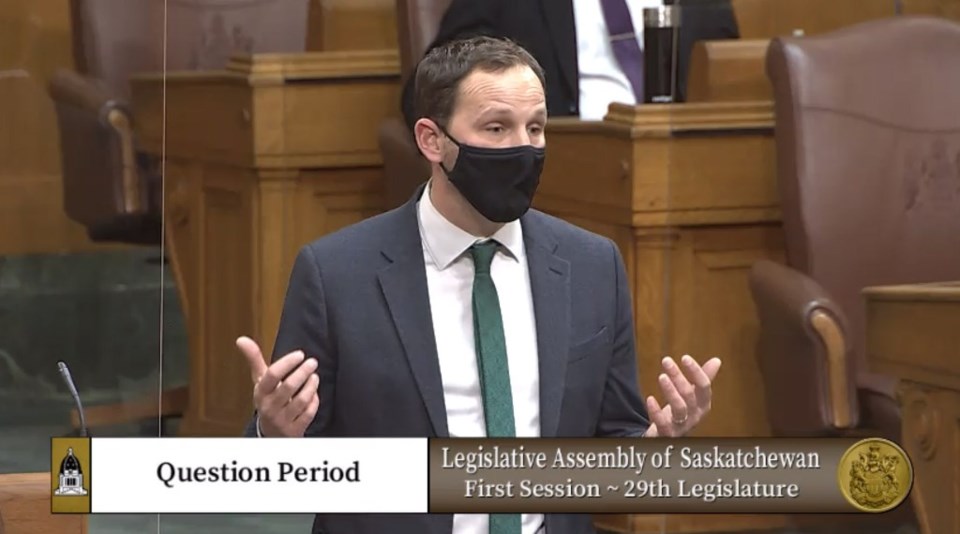Will the Canadian Armed Forces be assisting Saskatchewan in dealing with the COVID-19 crisis, as it has done in Quebec and Ontario?
New Democratic Party Leader Ryan Meili asked about that during question period on Dec. 8, saying, “Army reservists, we’ve also learned, are being trained to be deployed in Saskatchewan. The situation here in the province is clearly out of control. And this premier is clearly in over his head. We have the second-highest number of active cases per capita in the entire country. We’ve got new outbreaks in long-term care and hospitals every day. Does the premier recognize he needs some help? And has he been reaching out to the federal government? Will there be military support for health care delivery here in Saskatchewan?”
Premier Scott Moe responded, “My understanding with respect to the military is there is some conversation with respect to the community of Fond-du-Lac and there has been some conversation at the Council of Federation table with the military working with distributing the vaccine from the suppliers ultimately to the provinces.”
He also said, “We have also reassigned a number of people in the Saskatchewan public service to help us with testing and contact tracing, as well have worked closely with the federal government to use some of the resources in people that they have here in the province — specifically I believe Statistics Canada, people that are employed with Statistics Canada — to help us with some of our contact tracing here as well.”
Speaking to reporters, Minister of Government Relations Don McMorris said, “So we know that there is an outbreak in Fond du Lac, and due to the remoteness of the community, it's just excellent that we can call on the Canadian Rangers, who are local to the community, to then start supplying humanitarian services. It's not like, you know, our armed forces are flying in. Canadian Rangers are community members that then serve in the Ranger status to provide humanitarian services such as supplying food, getting food for people that are shut in, and firewood, and all those types of things. So it's not like the some people think, that is more of a military exercise. That's not what this would be classed as.”
He explained the Saskatchewan Public Safety Agency put in a request on Dec. 4 which was then accepted by the federal government.
McMorris noted there are a number of people who need to self-isolate and can use support.
Meili told reporters, “We've got this mixed message. We’ve got a government that's potentially exploring reservists coming in. We've got a government that's preparing field hospitals, training staff, for field hospitals, and at the same time musing about lifting restrictions in the days ahead.
“Whether that help is immediately coming or coming weeks ahead, he should be exploring every one of these avenues, instead of what we've seen, which is cross your fingers and hope things get better approach, instead of taking the proactive serious measures needed to keep people safe.”
He added, “And I think Saskatchewan people have been ill-served by the lack of forecasting from this government. Here's what happens next, in certain circumstances. That's why you get situations, where kids are out of school with no real warning, and no real involvement, from the province, and where those supports should be placed where those thresholds should have been made clear, for the divisions and students.”

.png;w=120;h=80;mode=crop)


